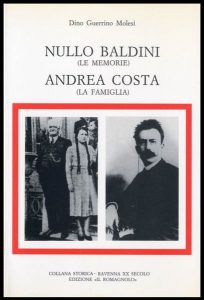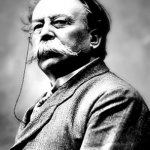He approached anarchism as a young man,and then approached the democratic and reformist socialism.
As an intellectual he supported the role of cooperatives as the focus of the democratisation process of society.
In order to improve the working class conditions Costa believed that a gradual work was necessary, composed of “practical means”, associative forms as the trade union and cooperatives.
He privileged a relationship with some of the main leaders of Italian cooperation, amongst them Giuseppe Massarenti, Nullo Baldini, Camillo Prampolini.
In 1882 he was the first deputy elected by the newly established Socialist Party.
In 1909 Andrea Costa became vice president at the Chamber of Deputies.
The year after, on 19th January, he died at the age of 60 in a hospital in Imola.
We bring back Giuseppe Massarenti’s memory of the influence that Costa exerted in the Italian cooperative movement: ”the economic and moral wealth that cooperation generates cannot be considered a damage or a defect due to socialism, as some of our blind companions of the intransigent revolutionary tendency believe. Well-being though is reached only by increasing the wealth production (..) by releasing it among its members. This has to be the duty of cooperation. But cooperation alone can’t solve the social issue: public authorities also have to be conquered, from the municipalities to the state government, all spheres of middle-class society, means of production and exchange (..). This was the teaching that Andrea Costa left us:
Some of his writings:
• Il 18 marzo e la Comune di Parigi, 1896
• Bagliori di socialismo, 1910
• Lettera al ministro Giovanni Nicotera, 1910

Further reading:
• A. Varni, Emilia-Romagna terra di cooperazione, Eta/Analisi, Bologna, 1990
• D. G. Molesi, Nullo Baldini (le memorie) - Andrea Costa (la famiglia), Il Romagnolo, Ravenna, 1991
• Treccani COSTA, Andrea in "Dizionario Biografico"
• Cooperativa Andrea Costa, La Biografia di Andrea Costa


